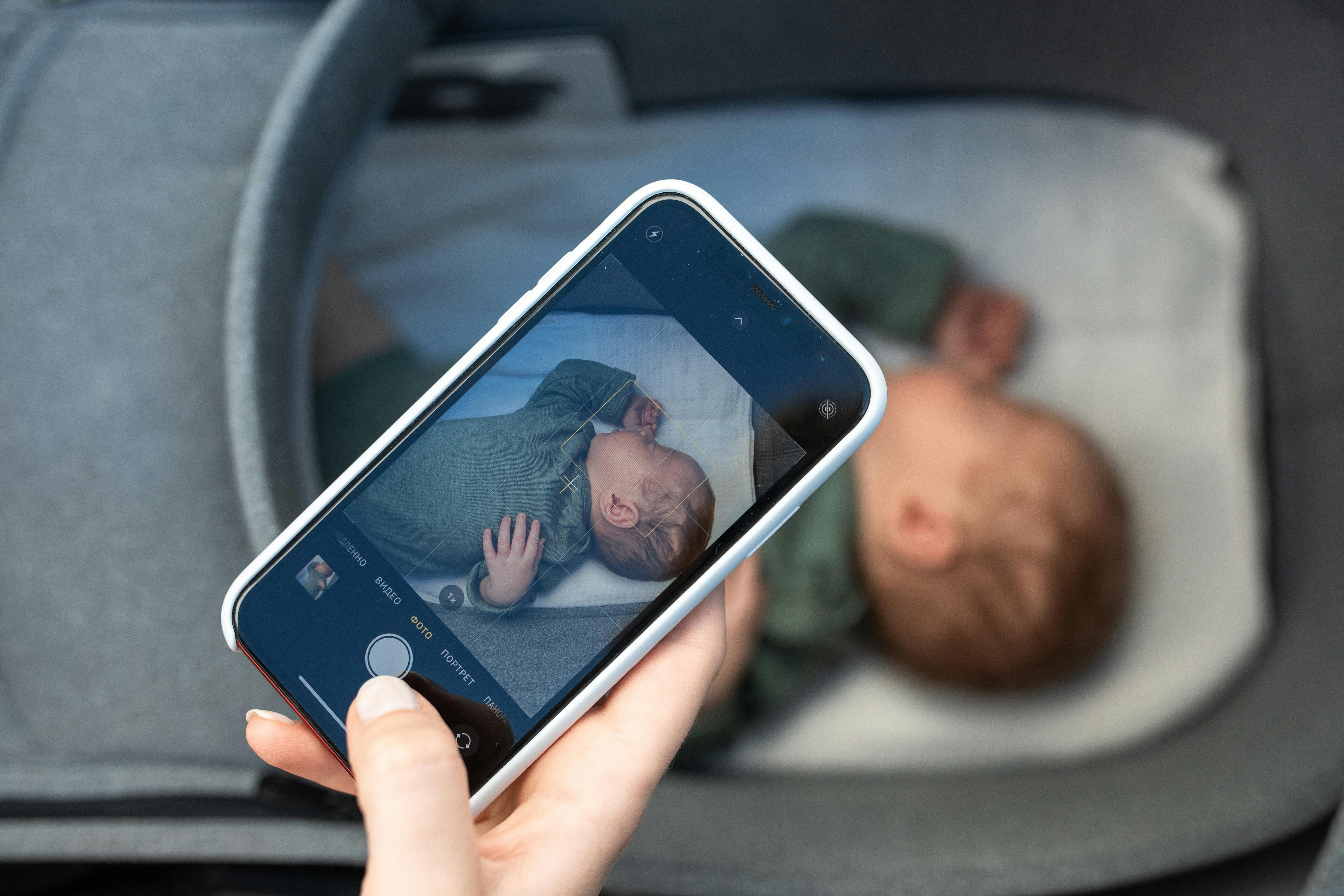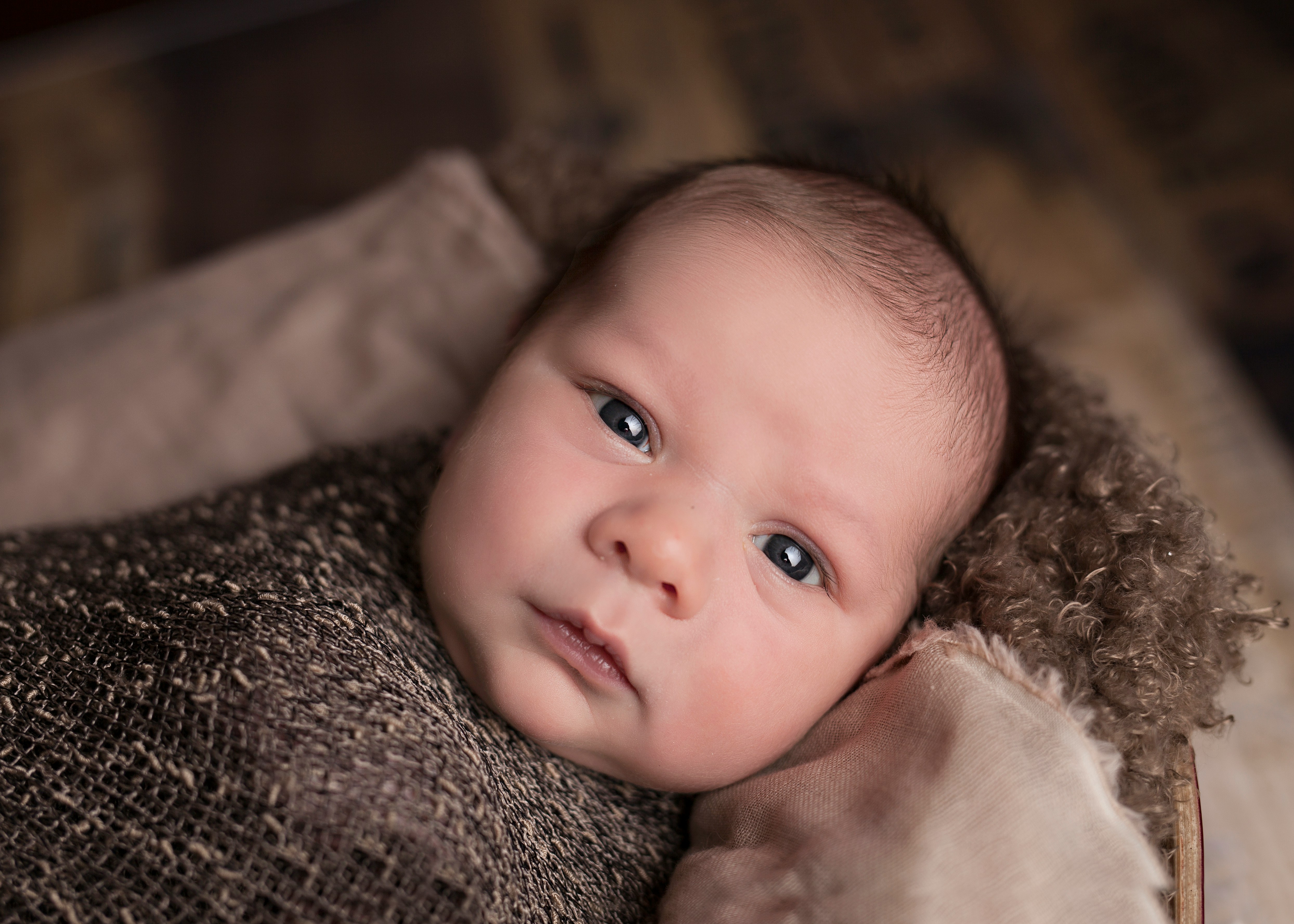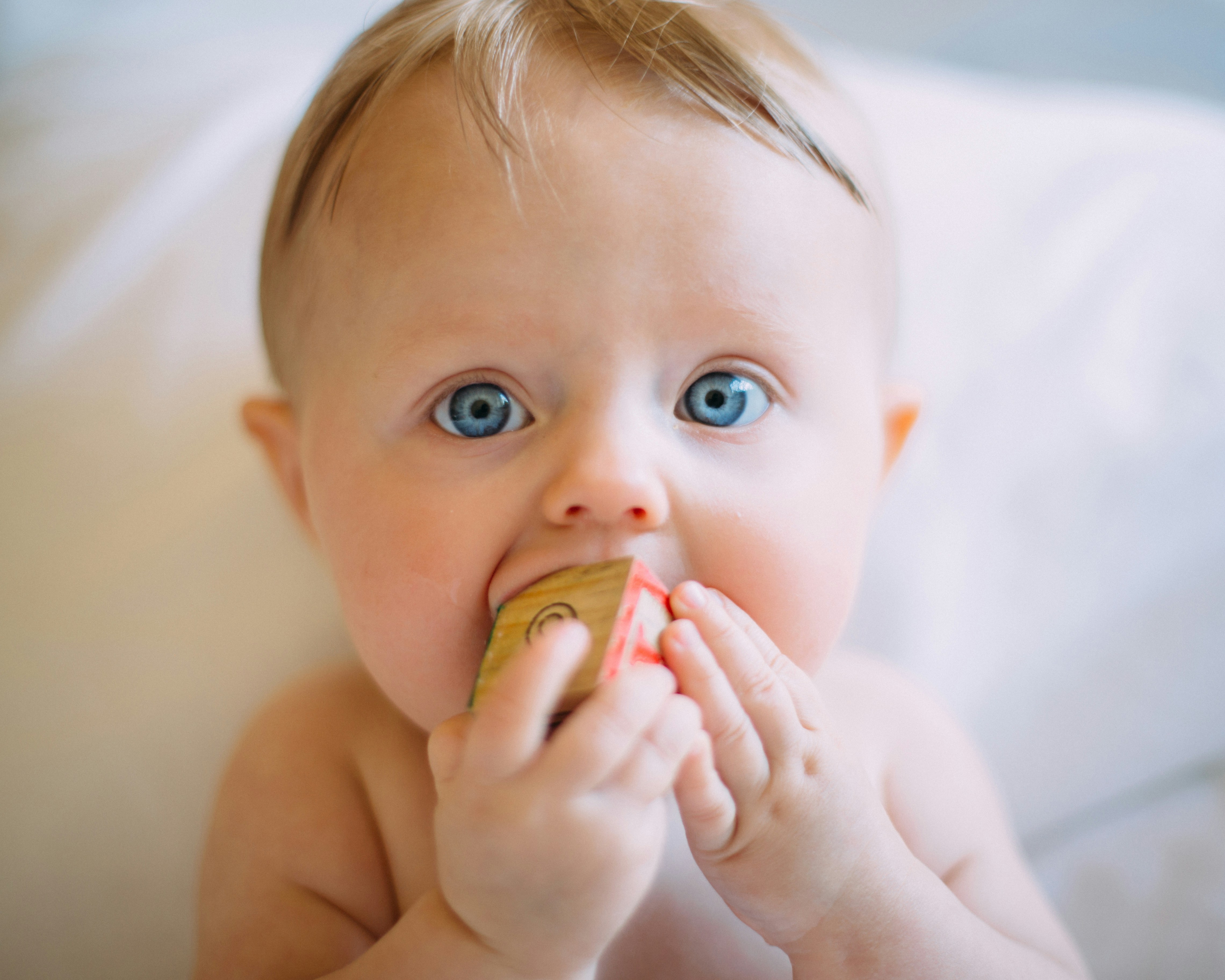And you only have eyes for your precious baby! Naturally, you're eager to begin taking photos right away. However, your little one only seems to open their eyes in low light, and you're unsure if it's appropriate to use the flash on your camera or smartphone.
It's possible to capture precious memories without hurting sweet, sensitive baby eyes. We've created this guide to help new parents understand the intricacies of baby vision. You'll understand why your camera flash can be harmful and how to safely use safe tools like Pixsee to capture beautiful moments.
See also: Tips on How to Prepare for Your Newborn Photography
Read on to learn the secrets behind your baby's delicate peepers and how to keep them safe.
Should You Use Flash On Your Camera?

A newborn baby's eyes are light-sensitive. You might notice that they rarely open their eyes in a bright room, and you're more likely to capture a glimpse of those precious peepers in a darkened room or while they're shaded by a blanket.
While sleeping baby pictures are precious, we're sure you want to capture a few images of your baby with their eyes open. You'll likely need to activate flash to snap a photo in low light. While bright lights do not cause long-term damage or impaired vision, they can be startling and uncomfortable.
Think about how you feel when you accidentally look directly into a flashlight in the dark. A baby's eyes are even more sensitive than an adult's, and a flash can stress the retina when used in a dark room.
Newborns and infants under one month old have the highest potential for flash-related discomfort. Their pupils do not yet constrict sufficiently to protect the eye from high illumination, and the flash may cause temporary blindness or mild pain.
Ultimately, it's up to you whether or not you'd like to subject your infant to temporary discomfort by using flash photography. We suggest avoiding flash until your baby is at least two months old.
Alternatives to Flash Photography
Camera technology has come a long way since the advent of the smartphone. Night vision features were once gray and grainy and produced images that seemed plucked from horror movies. Today, with the proper hardware, night vision cameras can capture stunning, detailed photos.
Your Pixsee smart baby monitor comes standard with a 1080p FHD camera, 5MP, and 6-layer optical lens. It gives you access to a 160° ultrawide view without distortion.
Your smart baby camera is more than a baby monitor. It uses the AI technology to capture dynamic images per day. If your baby is bright-eyed and smiling in the middle of the night, Pixsee will capture a crystal clear night-vision photograph for you to treasure.
You'll also have access to manual capture technology. You can stage photoshoots, capture candid moments, or grab your Pixsee smart baby camera whenever the natural light is perfect.
The award-winning Pixsee App makes sharing images with fun thematic frames easy. You can include pictures in ecards or add them to your baby's virtual growth record.
Most importantly, you won't cause any harm to your sweet baby's delicate eyes.
Keeping Baby's Eyes Safe

While a camera flash is unlikely to cause long-term damage to your baby's eyes, they are still sensitive, developing organs that demand protection. There are a few things that diligent parents can do to ensure that their baby's vision stays clear.
Be Aware of Fingernails
Babies have incredibly sharp fingernails, which are capable of doing damage to skin and eyeballs. If your little one hasn't discovered their hands yet, you'll want to keep an eye on them so they don't hurt themselves by mistake. Use a pair of infant-sized nail trimmers, and keep newborn hands covered with soft baby mittens to avoid accidents.
Likewise, babies don't understand cause and effect until they're older. If they start rubbing their eyes, it can cause irritation. If your little one starts rubbing, redirect them to prevent accidental damage.
Take Babyproofing Seriously
Even adults occasionally bump into the corner of a table and end up with a nasty bruise. When that same table is at your baby's eye level, it can lead to eye injuries or even retina damage. Be sure to babyproof your furniture to avoid incidents.
Pay Attention to Symptoms
New parents sometimes feel nervous about reaching out to the pediatrician. However, always err on the side of caution when it comes to your baby's eyes. If you notice redness, irritation, or excessive tears, seek medical attention for a possible infection.
Protect Your Baby's Peepers With Pixsee
You deserve to capture and preserve every stunning moment with your beautiful new baby. Don't let your fear of harming your newborn get in the way of photographing those fleeting milestones. Avoid using flash on your camera and choose a product like Pixsee, with advanced hardware that can capture crystal-clear images, day or night.

The Pixsee smart baby monitor does more than take photos. Smart technology simplifies every parenting task, from soothing your baby to maintaining daily routines. Visit our Pixsee Shop or Amazon online store to discover why new parents trust to keep their babies safe.







